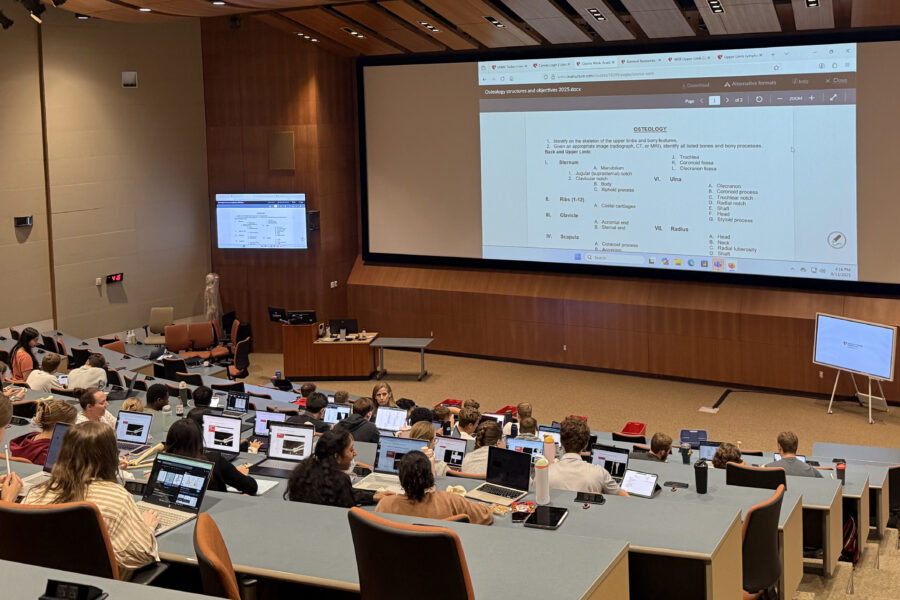Starting medical school can feel overwhelming, but a new Academic Preparedness Program at UNMC is helping incoming students build confidence before their first day of class.
The weeklong initiative, launched in August and offered to all incoming medical students on a voluntary basis, introduced students to lecture material, study strategies and wellness practices. The program, designed to give participants a realistic preview of medical school and advice on how to succeed, also included a mock quiz and a panel featuring second-year students.
For incoming medical student Ben Ravnsborg, the program offered a welcome head start.
“It gave me a foundation on the format of everything; how to take notes, what resources to use, even just how to get to the presentations,” he said. “The M2 panel was especially helpful, because we heard from people who just went through it and could share what worked for them.”
Eben Samuel agreed that the exposure was valuable.
“Everyone talks about the huge volume of material, so getting a taste of that earlier on was really helpful,” he said. “It’s not about memorizing every detail but about understanding the broader concepts and going deeper where you can.”
For others, the program served as a re-entry point after time away from academics.
“I took a gap year, so I mainly wanted to get back into the mindset of studying before anything was graded,” Santosh Kota said. “I also learned new study strategies that showed me memorization isn’t the only, or best, approach in medical school.”
Beyond academics, students highlighted the benefit of forming early connections.
“It’s a lot of faces and names you get familiar with before classes get really intense,” Ravnsborg said.
“Even just meeting potential lab partners or people with similar interests makes a difference,” said Maximus Lauritsen, who is considering neurology as a specialty.
For Skye Kusler, establishing connections and a support network was helpful. “Med school can sound scary and competitive, but everyone here has been so welcoming,” she said. “It’s nice to start out knowing we’re all in this together.”
Program director Aleisha Nabower, MD, said early feedback suggests that combining practical preparation with community-building is making the transition to medical school more manageable.
“The week went very well,” she said. “The students were highly engaged in trying out different techniques and figuring out what worked best for them. Additionally, they were able to establish connections with both their classmates and upperclassman, helping them build their support networks for the years to come.”
Dr. Nabower expressed gratitude to all the faculty across the phase one curriculum, wellness officers, academic advisers, second-year medical students and offices of medical education and student affairs that put in countless hours to get the program off the ground.
“The collaboration across multiple entities is really what made this week successful,” she said.
